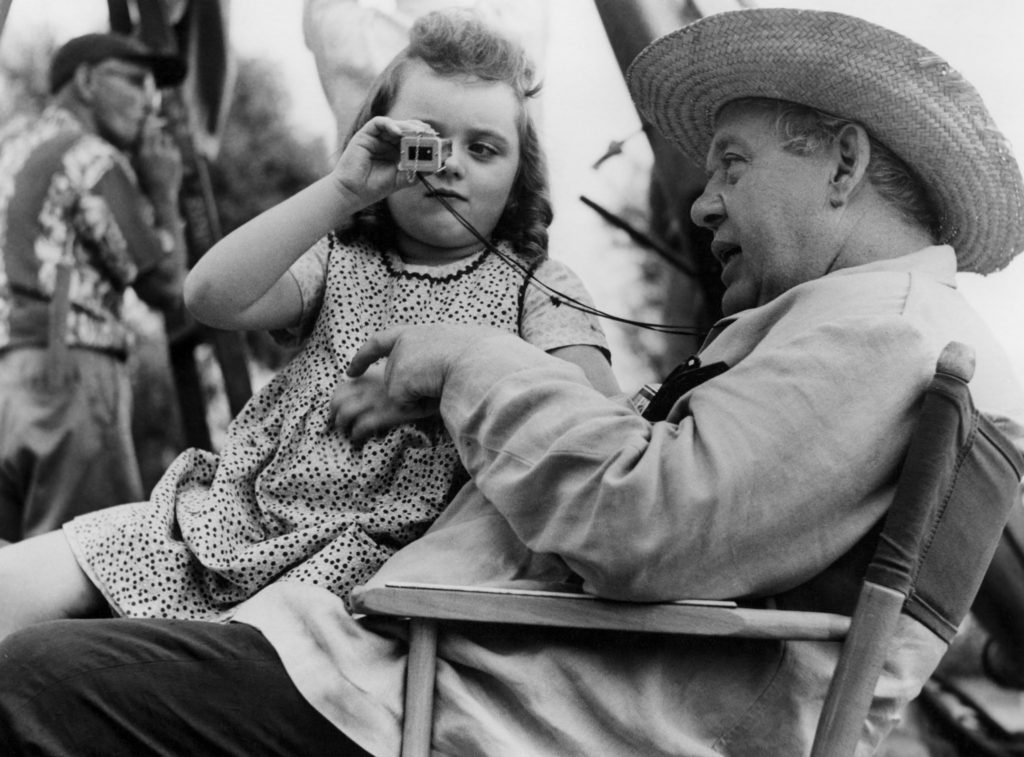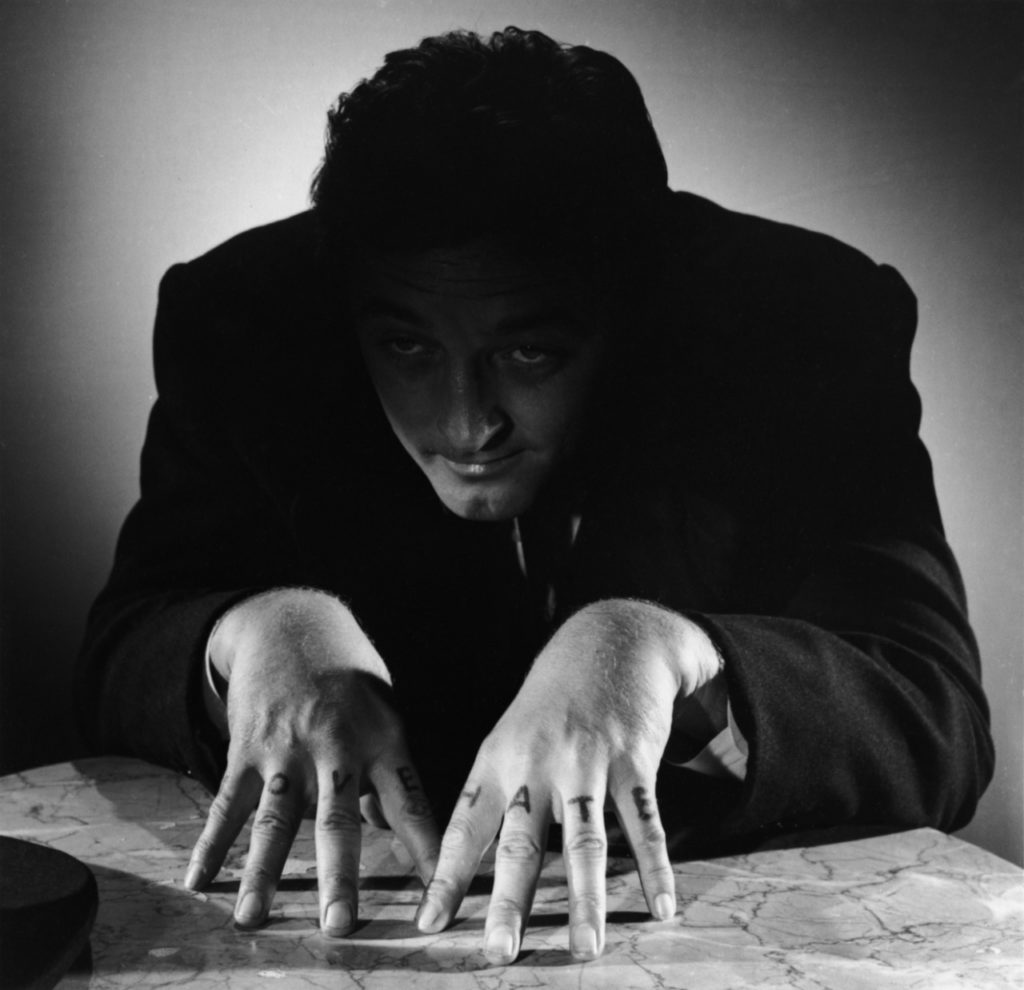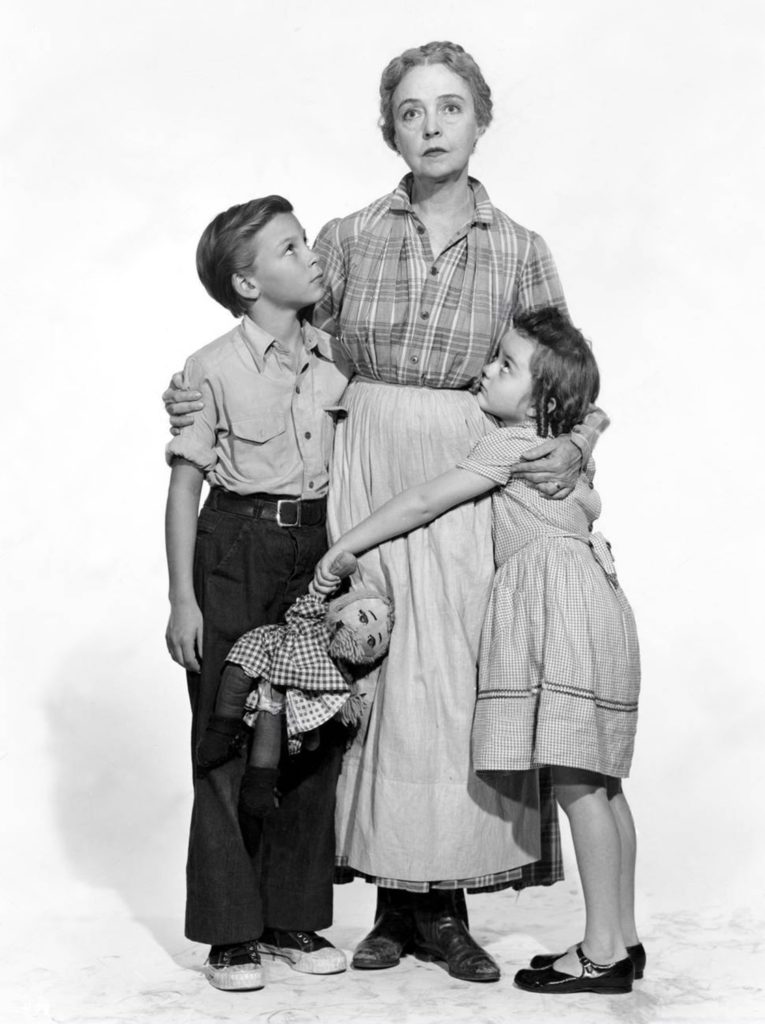I wrote this introduction for The Mesilla Valley Film Society’s screening of The Night of the Hunter in September, 2023.
Google has a function called “People Also Ask,” where it automatically creates a list of questions and answers based on a topic. When researching for tonight’s film, it offered up “Why was The Night Of The Hunter Charles Laughton’s only directorial credit?”

Turns out it was sadly the same thing that causes the vast majority of single-entry filmographies: it just didn’t make enough money. That’s a real shame, because this is one of the most beautiful films from the classic Hollywood era, loaded with lush imagery and beautiful compositions, all presented with a theatricality that highlights the artifice in a way that draws you in even more. It’s a movie that’s resolutely proud to be a piece of art.
A lot of this is down to Laughton’s close working relationship with cinematographer Stanley Cortez, known among film noir fans for shooting Sam Fuller’s The Naked Kiss and Shock Corridor as well as Orson Welles’ butchered masterpiece, The Magnificent Ambersons. In fact, Cortez once compared working with Laughton to working with Welles: they both understood light and how to use it in an instinctive manner.
Now, all the visual panache in the world means nothing without a strong script or good performances, and that’s something that Laughton brought to the table. Based on the novel by Davis Grubb, the screenplay is credited to James Agee, but it was actually Laughton himself that took his rambling, alcohol-fueled script and reworked it into something that he and the cast could work with, and what a cast it is.

Robert Mitchum appeared in over 100 films and TV series in his career; he repeatedly declared in interviews that Reverend Harry Powell was one of his best, most impressive roles. In a filmography that includes The Longest Day and Cape Fear (along with noirs like Out of the Past), that’s saying something. Shelley Winters’ performance as the widow Willa Harper starts off pretty cookie-cutter, but as the movie continues, it hits the kinds of heights that would later earn her two Academy Awards. Silent film icon Lillian Gish rounds out the adults as Rachel Cooper, whose motherly instincts in the final act give the audience multiple “hell yeah!” moments. In an unusual turn of events for the period, even, the kid actors in this are pretty great, with Billy Chapin turning in a performance that’ll remind modern audiences of Ryan Gosling.

It’s a real shame this movie was a flop – it’s a true gem, an artistic statement that the studios at the time rarely let hit screens. The New York Times, Variety, Sight and Sound, and The Observer all panned it, and audiences stayed away. However, thanks to repeat airings on television through the 60s and 70s and champions like Roger Ebert and Martin Scorsese, it found its audience and later even Sight and Sound would feature the movie as the 22nd greatest film of all time in its 2022 poll.
If there’s one thing I can sympathize with critics at the time about, it’s that the movie’s tonal shifts can be abrupt and a bit off-putting. In fact, after my wife Robin and I rewatched this movie this past Friday, I turned to her and said “What’s up with this Little Women-ass ending?”
Now, enjoy the trailers, please consider supporting the Mesilla Valley Film Society with a membership, and come back next month for one of my very favorite genre films, Joseph H. Lewis’s Gun Crazy.
Leave a Reply